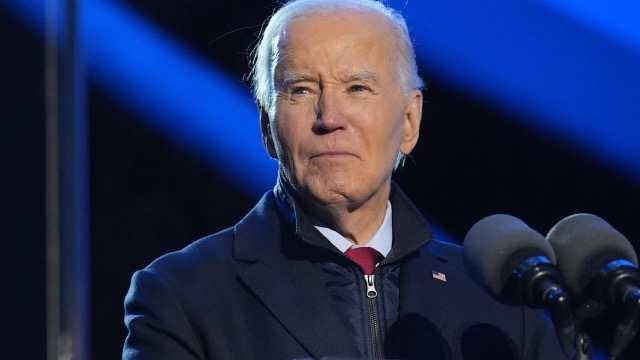President Joe Biden signed the $895 billion National Defense Authorization Act (NDAA) on Monday, despite a controversial provision restricting military healthcare coverage for transgender treatments for minors. The bill includes measures to increase military pay, counter China’s growing power, and invest in advanced defense technologies.
Restrictions on Transgender Medical Care
The NDAA restricts funds from TRICARE, the military’s healthcare program, from being used to cover gender-affirming care, such as medication and other treatments, for dependents under 18. While the measure received support in Congress, it faced significant pushback from the Biden administration.
Biden criticized the provision, calling it an infringement on parental rights and an obstacle for the military to attract and retain talent.
“No service member should have to decide between their family’s health care access and their call to serve our nation,” Biden said in a statement.
Despite his opposition to the provision, Biden signed the bill after it passed the Senate in an 85-14 vote.
Pay Increases and Strategic Focus
The NDAA grants a 14.5% salary increase to junior enlisted service members and a 4.5% raise for other ranks. It also emphasizes countering China’s influence, establishing funds to aid Taiwan militarily, enhancing U.S. ammunition production, and investing in technologies like artificial intelligence.
The legislation continues efforts to reduce reliance on Chinese goods, prohibiting the military from purchasing various Chinese products, including drone technology and even garlic.
Provisions on Guantanamo Bay
Biden also objected to provisions limiting the transfer of detainees from Guantanamo Bay, stating they hinder executive authority and called on Congress to reconsider these restrictions.
Advocacy Groups React
LGBTQ advocacy groups expressed disappointment in Biden’s decision to sign the bill, criticizing the inclusion of the provision restricting transgender healthcare for minors.
Kelley Robinson, president of the Human Rights Campaign, said the law harms military families by denying them the freedom to make healthcare decisions for their children.
Rachel Branaman, executive director of the Modern Military Association of America, also condemned the decision, stating it creates “significant hardships” for vulnerable military families and contradicts Biden’s claim of being the most pro-LGBTQ+ administration in U.S. history.
Looking Ahead
While the NDAA sets defense policy, a separate funding bill is needed to fully finance the initiatives outlined in the legislation. Biden signed a continuing resolution last week to maintain government funding through March 2025, with lawmakers still needing to pass a comprehensive defense appropriations bill.
 Telegram is where we really talk. Don't miss out!
Telegram is where we really talk. Don't miss out!








